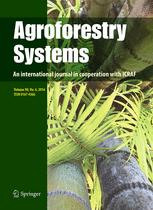
Bridging science and development: lessons learnt from two decades of development research
Callo-Concha, Daniel / Manfred Denich / John P.A. Lamers / Anna Schwachula / Anna-Katharina Hornidge / Asia Khamzina / Christian BorgemeisterExterne Publikationen (2017)
in: Agroforestry Systems 91 (5), 799-810
DOI: https://doi.org/10.1007/s10457-016-0008-y
Information
This paper presents the theoretical, operational and implementation premises that guide the development research agenda of the Center of Development Research (ZEF), exemplified by three agroforestry-related case studies. First, the importance, assumptions, conditions and priorities for development research in the context of developing countries are reviewed. Second, the three core premises of ZEF’s research approach, (1) transdisciplinary to carry out research on real-life problems, (2) symmetrical partnerships with local stakeholders to sustain ground activities and ensure implementation, and (3) capacity development to warrant future competences, are exposed. Third, these premises are exemplified and mirrored in three agroforestry-related case-studies: (1) slash-and-burn agriculture in the Brazilian Amazon, (2) socio-ecological management of coffee-agroforests in Ethiopia, and (3) afforestation with multipurpose tree species in Uzbekistan. The paper concludes by streamlining the theoretical and practical premises exposed with the presented case-studies, and confirming how these have guided ZEF in the planning, implementation and continuation of development research programs. Although ZEF’s approach to development research is dynamic and continuously subject to assessment, its core remains guiding even after two decades of implementation, appearing to be a suitable pathway for reaching development objectives.


